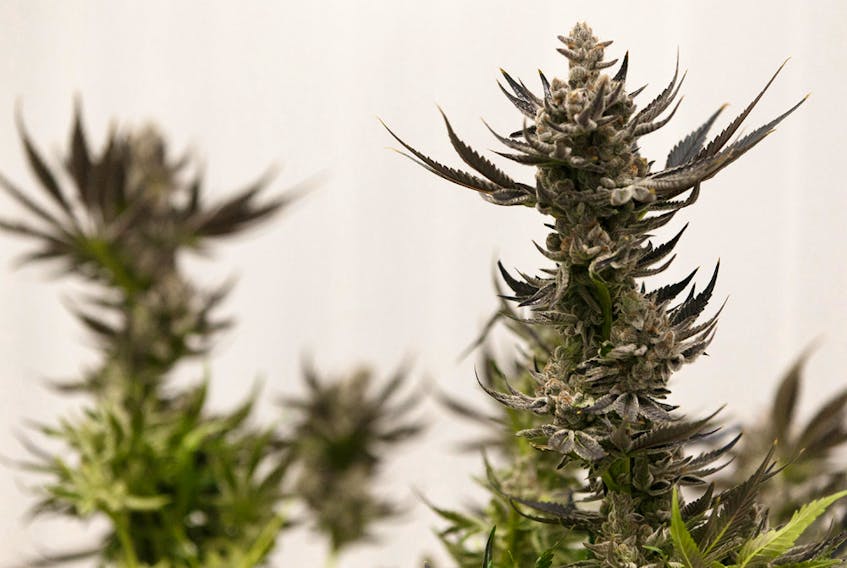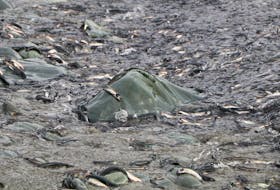Some of the cannabis grown by CannTrust Holdings Inc. in unlicensed rooms at its Niagara facility had already been shipped to provinces across the country, the company’s chief executive officer Peter Aceto confirmed to the Financial Post on a phone call this morning.
The acknowledgment comes after CannTrust revealed Monday that Health Canada had found that its Pelham, Ont., facility was non-compliant because marijuana had been grown in five unlicensed rooms. The company’s stock plunged as much as 20 per cent after the announcement.
It is unclear when the unlicensed product was packaged and shipped to the provinces, or whether the product in question has been sold to Canadian consumers.
“Some of that product has left. We feel confident in its quality and safety because it has gone through testing in Health Canada-sponsored party labs, as well as our own quality testing. But yes, some product has definitely been released to the provinces,” Aceto acknowledged.
He added that the company has been corresponding with the provinces regarding the product grown in unlicensed rooms, and would continue to have an “open dialogue” with the provinces. Aceto would not confirm which provinces the cannabis had been shipped to, but the company has supply agreements with all of Canada’s provinces.
Over the weekend, Health Canada placed a hold on 5,200 kilograms of dried cannabis at CannTrust’s Pelham, Niagara facility because it had cultivated cannabis in rooms not yet licensed by the department between October 2018 and March 2019. The five rooms in question received their Health Canada cultivation licence in April 2019.
The company also placed a voluntary hold on an additional 7,500 kilograms of dried cannabis equivalent at its Vaughan, Ont. indoor facility grown in “previously unlicensed rooms.”
“We believe it is highly likely the company will be forced to destroy the product that was produced within the non-compliant grow rooms,” wrote Canaccord Genuity Corp. analyst Derek Dley in a note.
An email sent to CannTrust’s medical patients Monday morning obtained by the Financial Post stated that “all products sold to customers and patients have passed both testing at Health Canada’s certified labs and CannTrust’s quality control processes and safety reviews” but did not mention that some of that product could have been cultivated in unlicensed rooms.
According to Aceto, Health Canada inspectors made a surprise visit to the Niagara facility in June and issued a report on the company’s non-compliance on July 3. The department has demanded a formal response from CannTrust by July 17 to determine exactly how the unlicensed growing took place.
“Look, mistakes were absolutely made at CannTrust. We have got a very clear process in place that is going to get us back into compliance as soon as possible. We have a history of growing quality products that people like, and we have typically done it in a safe, quality way,” Aceto said.
CannTrust’s stock plummeted 20 per cent within an hour of morning trading — the company is listed on both the Toronto Stock Exchange and the New York Stock Exchange, and was valued at over $1 billion before Monday’s news broke.
Aceto told the Post that one employee was terminated in relation to the unlicensed growing, but that a “root cause analysis” would be conducted by the company, with the help of third-party firm, Quality and Compliance Consulting Inc., to determine exactly who was responsible in sanctioning the growing of cannabis in yet-to-be-licensed rooms.
“To learn of the non-compliance status was disappointing and surprising. Getting to understand what happened here is a priority. We are making sure we are going to be open throughout this process, and will share any data with Health Canada,” Aceto said.
When asked specifically if he was concerned about potential criminal charges in light of the company growing and shipping unlicensed cannabis, Aceto was vague, reiterating that the company was working “collaboratively and openly” with Health Canada.
Both Health Canada and the RCMP have not yet responded to a request for more information on the matter.
• Email: [email protected] | Twitter: VanmalaS
Copyright Postmedia Network Inc., 2019









